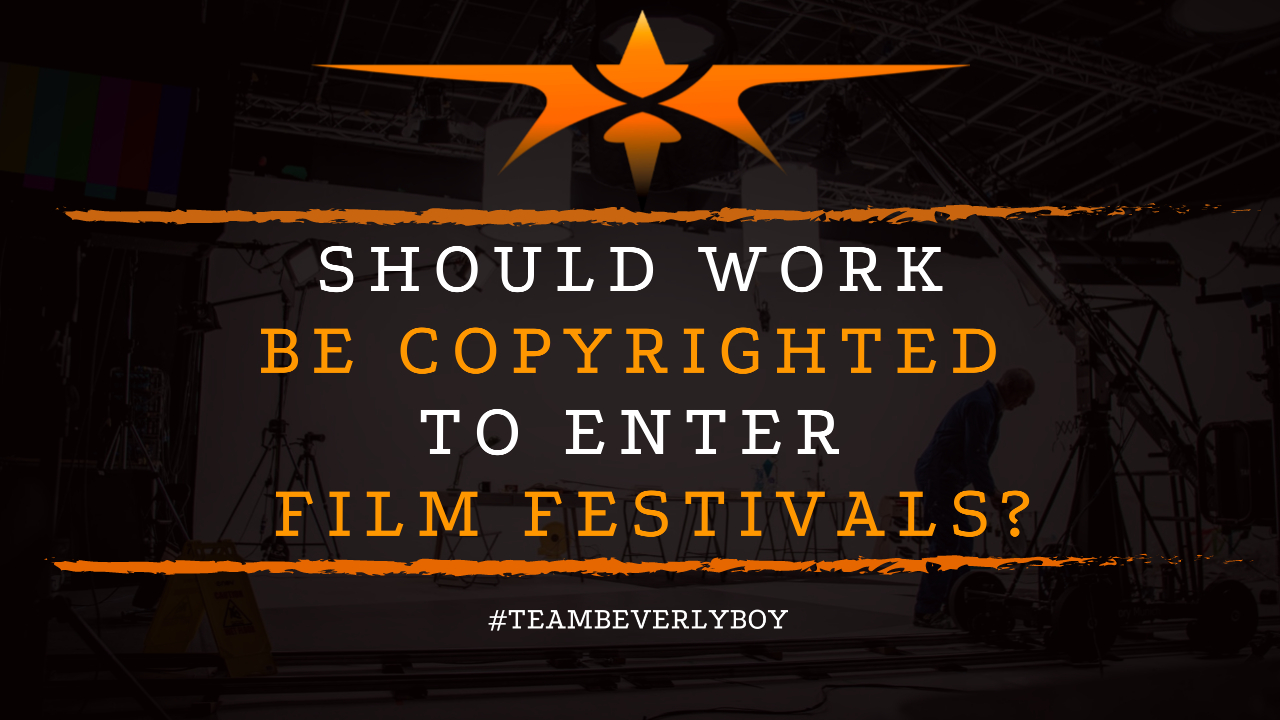
Should Work be Copyrighted to Enter Film Festivals?
As a new or aspiring independent film producer that’s considering the idea of entering a film into a local film festival you’re probably working hard to cover all the bases. Perhaps you even have a checklist of “things to do” in connection with your submission – prepare press kit, check, update social profiles, check, pay submission fees, check…But what about the copyright? Should work be copyrighted to enter film festivals?

Certainly you want to know that your film and all of the hard work that went into producing it is protected from potential thieves, but is this even what a copyright does?
If you’re wondering whether or not you should copyright your film before entering it into a film festival for consideration, you’re definitely not alone!
It can be down-right nerve wracking to navigate the process of submitting your film to a film festival for the first time and the fear of someone stealing what you worked so hard to complete in the process only compounds the matter. But should work be copyrighted to enter film festivals or not?
If It’s Filmed, It’s Protected by Copyright
As a new filmmaker you probably think that in order to protect your work you must first apply for the copyright. But the United States Constitution provides unique protections for filmmakers.
In fact a filmmaker does not have to actually register for copyright ownership in order for their work to be copyright protected. That’s right! Copyright protection is provided as soon as you create the work!
Don’t confuse protection of a copyright with ownership of a copyright. They’re two different scenarios. Under the U.S. Constitution’s Copyright Law, works are protected as soon as they are created.
However, if you wish to stake a claim for copyright infringement against someone who steals your work? You’re going to have to prove that you’re the original copyright holder.
This requires you to register your work. Thus, copyright registration is required in order for you to enforce the copyright protections that are automatically granted for your completed works.
Benefits of Copyright Registration
So, should work be copyrighted to enter film festivals? YES! In fact, your work is copyrighted as soon as you produce it. But you also want to register the copyright!
Registering the copyright is not required in order for the work to be technically copyrighted. But it is required in order for you to employ the protections afforded by the Copyright Act.
In fact, while the decision to register your copyright before entering a film festival is completely discretionary…
Filmmakers benefit in the following ways by registering through the United States Copyright Office:
- Registration produces an official government record of the work that you created. Which provides a foundation for your case of copyright infringement. Should someone else stake a claim to work that is similar in scope. Or otherwise a derivative of you own original work.
- Registration allows the filmmaker to sue for statutory damages for copyright infringement up to $150K for each infringed work case. Whereas without registration you would be required to prove the actual financial harm that occurred. As a result of the infringement of your work in order to be compensated for it.
- Registration is fast, easy and can be completed online. For just $35 you can register your motion picture copyright.
The Takeaway
Submitting your film for copyright registration is your sole responsibility and is not required for copyright protection but it is required if you wish to legally enforce the protections that are made available to you under U.S. Copyright Law.
Should work be copyrighted to enter film festivals? Technically speaking, the work is already copyrighted prior to your entry. But as a filmmaker you should register your copyright before submitting your film to a film festival.
So that there is record of your ownership of the original work. And so that you may fully enforce your rights as the copyright owner should your film fall into the wrong hands or should any form of copyright infringement take place.



